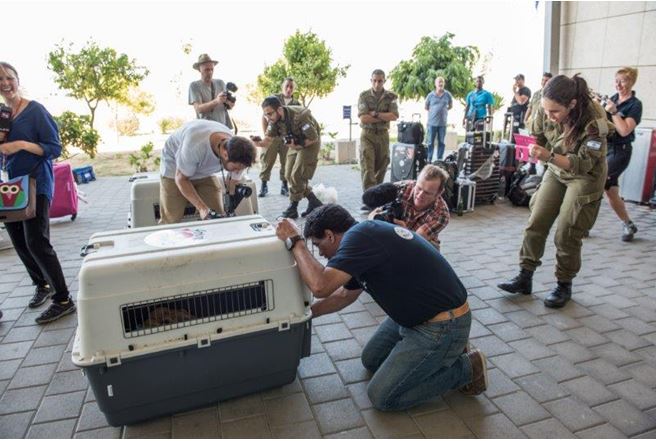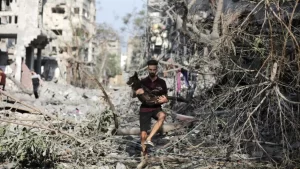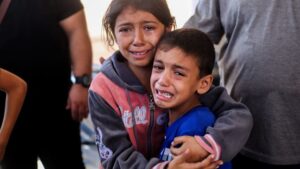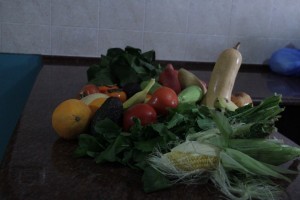“By Ahmed Safi”
“The Past That Hasn’t Truly Ended: A Different Perspective” – The past that hasn’t truly ended, and didn’t just conclude upon its expiry, hasn’t become a real past but has continued, albeit in various forms and appearances, and its methodologies have evolved. Thus, we find ourselves living it and perceiving it with a more peaceful outlook, but with the same perspective in which it began. The notion of possessing a desire for the other and setting oneself apart from them still forms the basis of many analyses accompanying colonialism since its inception. What was once a latent desire that accumulated and became an ethical and cultural legacy within modern society has transformed into a culture of exploring the forbidden. This culture carries within it an intriguing eagerness for experimentation and the progressive transmission of experiences. Due to the unsettling tensions within each individual and the variations in individual differences and their reflections on others, distorted perceptions of the other have made this article see the light, providing a space for research into the dominance of charitable institutions as independent entities and individuals as tension-filled entities, regardless of their varying capabilities or the cultural heritage specific to this place compared to others
We should realize that there is no perfect, ready-made, and harmonious global system where all creatures live in peace. This deficiency in the global model affects all aspects that could be part of it, ranging from comprehensive systems like nations down to international institutions and corporations, all the way to local institutions and individuals.
Institutions concerned with animal welfare may sometimes appear to adopt a different approach when dealing with issues. However, they should not be considered as quiet corners in the world. Such institutions, like many other international organizations, represent a long history of control, manipulation, diminishing the importance of the individuals they are concerned with, and violating their privacy and rights, which were established for their sake. They reflect patterns of interaction between the more powerful parties and modern institutions in the developing world.
It is indeed easy to resort to justifications and claim that it’s difficult to manage these matters on our own as the first Palestinian animal welfare association in Palestine. However, people should overcome these obstacles and work together to achieve their goals. There is no need to rely on external intervention or foreign experts to implement these ideas. Instead, the local community can start working on funding and executing local initiatives for animal welfare and environmental protection. Self-reliance and enhancing local collaboration can have a significant and sustainable impact on improving the situation.

This model aligns with our experience when dealing with the international organization during the process of transporting lion cubs from the Shaboura camp in Gaza to Jordan. We made significant efforts to execute this operation and shared numerous reservations and concerns that international organizations should consider before embarking on such endeavors. However, the results were not as expected, and repeated mistakes occurred. There was intentional oversight or concealment of our involvement. The entire story was presented to the international organization and the Israeli military, which allowed the lions to be taken out of Gaza. We would like to express our gratitude to the Israeli military for permitting the removal of the lions from the stronghold of the crime in Gaza into the light.

The stereotype built around us often reflects a lack of confidence in our ability to control our affairs independently of external influences. This lack of confidence encompasses doubts about our capability to innovate and present something new, portraying us as sources of “old and outdated” ideas that have been discarded for decades. Whether this perception is positive, driven by a common interest among individuals to execute or achieve an idea as a humanitarian duty, or it pertains to “developing” and “improving” the negative reality experienced by a group of people, it carries significant risks. These risks lie in who determines the form of development, the necessary framework for improvement, and who will undertake this task. Certainly, one cannot measure your shoe size based on our feet.
In this article, I am not criticizing a specific individual, and I reject the idea of generalizing that everyone holds the same views. However, the internal harmony in understanding the roles of individuals and the contradictions in understanding the cultural experience are part of the identity of white people, who aspire to find their presence through their criticism of others.
This contradiction is reflected in the white understanding of other cultures. Sometimes, white individuals may perceive what they observe in the world outside themselves as attempts to consolidate or improve their own ideas and personal experiences. At other times, they may have a mindset that becomes a leadership and rescue element in a specific context.
This mindset appears in a variety of cultural works, films, and literature where white people are portrayed as saviors of the world from different challenges and problems. They believe that, thanks to their knowledge and ability to change and improve, they can fix and save the world.
This Western mindset is associated with many ideas and beliefs about the self and the other, as well as their ability to bring about change. It is culturally inherited and part of the collective consciousness of Westerners.
On the opposite end of the spectrum, we find individuals in lower-income communities who see themselves and their nations as “self-inflicted wounds.” They have undergone significant struggles and attempt to save the colonizer from bearing responsibilities towards the countries they colonized. These individuals adopt the identity of the colonizer in defending themselves, their justice, and justifications for their actions, without which the situation would be worse than it is now.
As for the individual model we will discuss in this article, it diverges from generalizing those who seek to engage in volunteer work and integrate into new societies. They may unintentionally make a mistake driven by their belief in their superiority and belonging to the race and culture they identify with. This often entails duties of leading and guiding others.
This model reflects a common approach to dealing with the legacy of old imperialism in its cultural form. It relies on control and unfair disparities in real power and wealth ownership. It also involves variations in ethics that can be interpreted in a servile manner.
These models manifest in the form of support and assistance for others or their integration into a more advanced religious or intellectual stage. However, it should be considered that the main reasons for the subjugation and inequality in dealing with individuals from these advanced civilizations, “ethically,” can be linked to the ways in which society interacts with these individuals.
What you need to do to step out of the cultural framework set by society is to fully realize that the current battle is also your battle, and you are a part of it. There is no place for assistance in this context because you all live on the same planet. It is not enough to raise a pet or feed a dog to break free from the circle of commitment to humanity and conscience. Matters go beyond that and are measured beyond it.
Violating the freedom of others is evidence of your failure to fulfill your duty. It should be noted that the wheel of civilization is in constant motion, and power dynamics within societies may change. The day will come when you find yourselves in the place of the person you are currently criticizing, and you will criticize his lack of resourcefulness, indifference, and self-indulgence.
“References”
- “Culture and Imperialism,” Edward Said, p. 90, Dar Al-Adab Publishing.
- http://www.vier-pfoten.eu/files/EPO/VIER_PFOTEN_2015-07-03_065.jpg
- http://komonews.com/news/offbeat/photos-inseparable-lion-cub-siblings-cuddle-on-journey-to-safety-11-21-2015-123551762#photo-15



